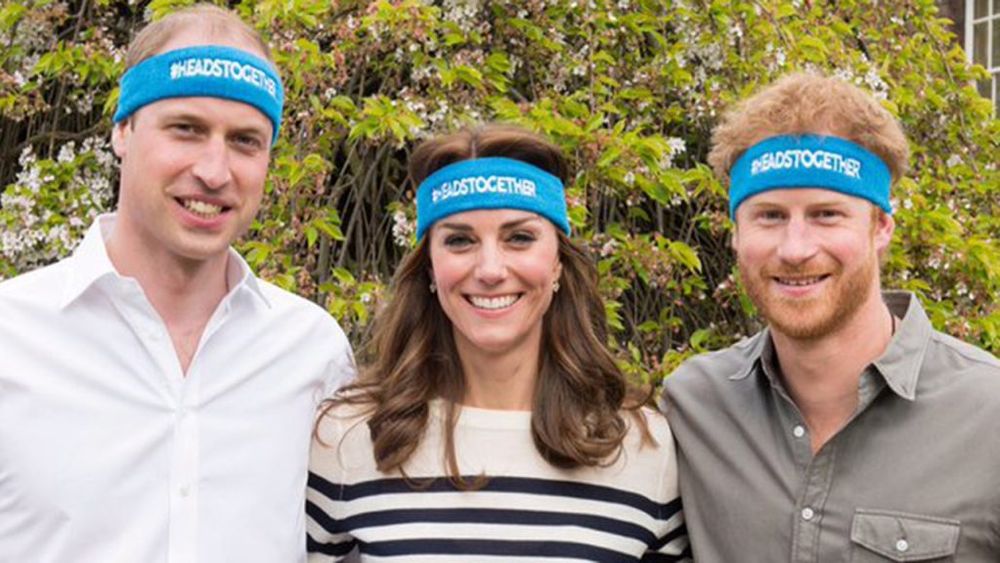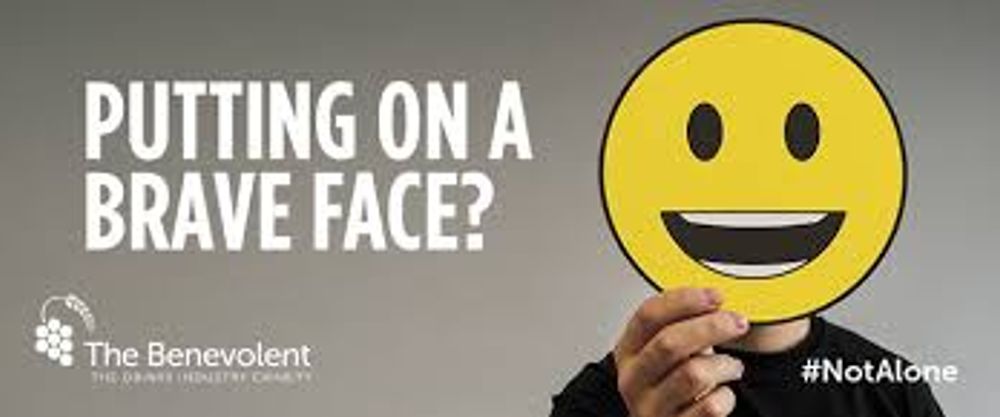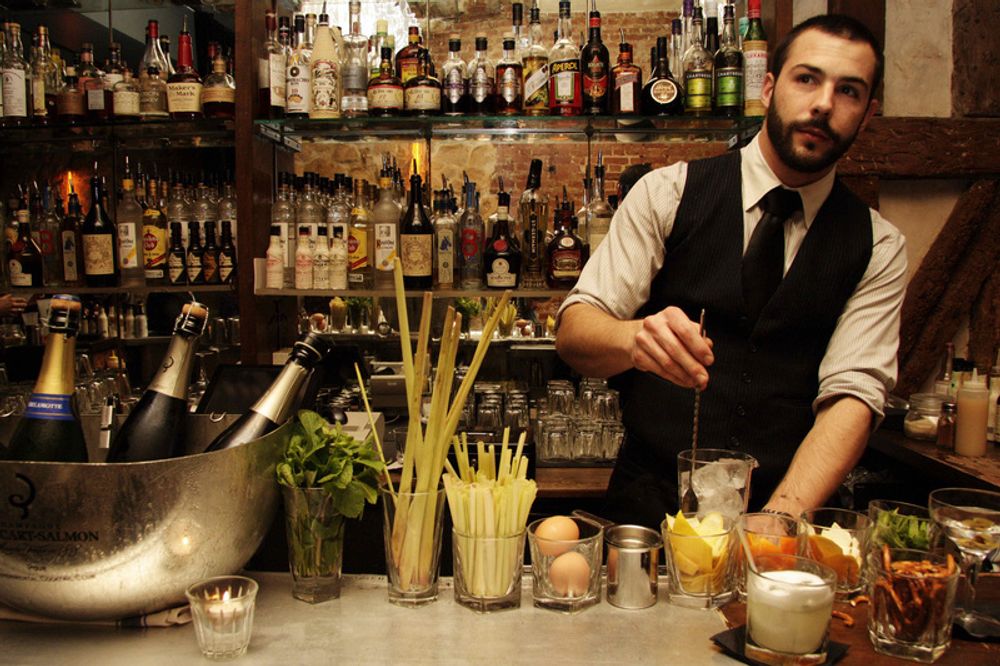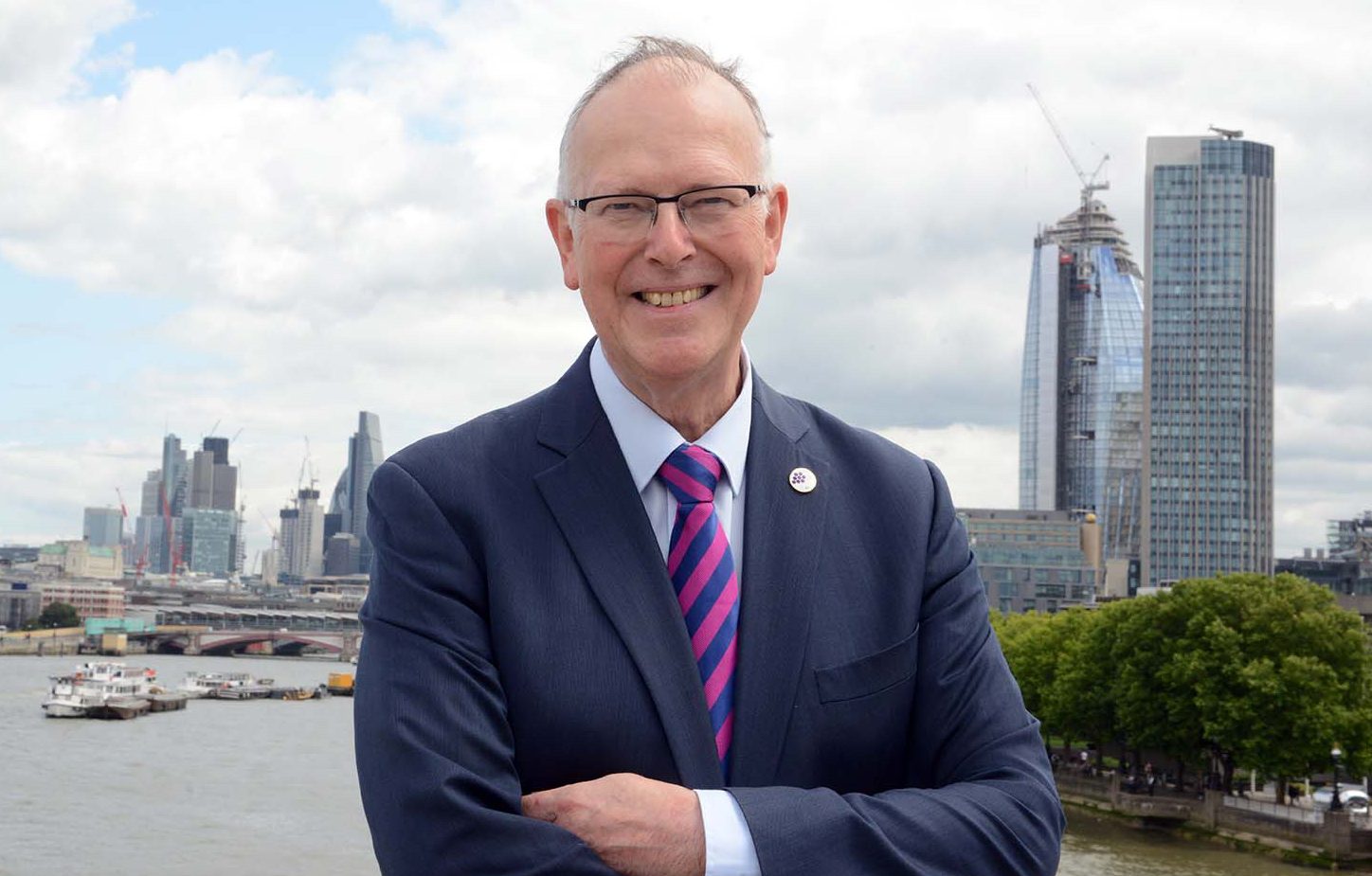Chris Porter, chief executive of The Benevolent talks to Helen Arnold about the steps it is taking to make it as easy as possible to support those in the drinks industry with mental health issues.
It would appear that the Great British stiff upper lip is under threat, with Brits now doing the once unthinkable and talking openly about their mental health.
No longer is it as socially unacceptable as it once was to discuss feeling depressed or anxious, and it would seem that mental health has never enjoyed such a high profile; finally a subject worthy of the respect it deserves by our national media, thanks, in no small part, in the focus that leading newspaper you open, every news programme you tune into seems to feature an item of mental well being on the agenda.

The Duke and Duchess of Cambridge and Prince Harry supporting the Heads Together campaign
As if that’s not enough, A-list celebrities are openly emoting and baring their souls, and even the royal family are at it, with Prince William, The Duchess of Cambridge and Prince Harry all spearheading a campaign to ditch the old taboos and get the nation talking openly about mental health.

It is timely, therefore, that the drinks industry’s own charity, the Benevolent, has chosen this year to launch its very own mental health awareness campaign, #NotAlone.
Chief executive Chris Porter says the campaign isn’t just a fad or a case of jumping onto some fashionable here-today gone-tomorrow bandwagon.
Absolutely not, he insists. “In the past 18 months or so there has been a noticeable increase in the number of people coming forward with mental health issues,” he says, adding that there is a very real need for more support from within the drinks industry itself.
“I cannot imagine what it must be like to be living with depression, severe stress and anxiety and having nowhere to go or no one to talk to,” he said. “Mental health issues are not restricted to class, race, gender, sexual or religious orientation – it can affect anyone at anytime in their lives and our trade is no exception.”

More to be done
Porter, however, believes that much more could and should be done, adding that while stigmas are fast falling by the wayside, mental health concerns are still too often spoken of in hushed terms and tinged with embarrassment.
“Yes, we are talking about it more, but there still remains a bit of a taboo surrounding mental health,” he says. “While people talk freely about their physical ailments they are still less prepared to discuss mental health concerns, despite some very high profile people talking about it, from royalty to rock stars. The stigma has undoubtedly lessened, but I think the ability to talk openly about mental health still has some way to go.”
He says that the need for dedicated support from within the drinks sector has been backed by the response to the launch of the Bevevolent’s confidential telephone line, which was launched late last year (0800 9154610)
A forerunner to the #NotAlone campaign, the phone line is manned 8am – 8pm five days a week by a professional counsellor, and is available for anyone in the drinks sector who needs support or advice with mental health issues.
Porter says he has been taken aback by how many calls the service has received from individuals suffering from depression, anxiety and other mental health problems. Reluctant to divulge actual numbers, nonetheless, he says that the phone line has proved beyond doubt that there is a very real need for more awareness and understanding of the issues and the importance in breaking long-held taboos.
“A substantial number of people have called the helpline since its inception, and we hope to build on the sort of work done by mental health charities such as Mind and Sane and harness that.
Mental health and the drinks industry
Does he think the working in the drinks industry makes individuals more vulnerable to mental health problems? After all, alcohol abuse and misuse is known to be a contributory factor towards depression, and can also exacerbate other psychological conditions.

Late nights and unsociable hours worked by many bar staff can make mental health problems seem worse
”When you consider the unsociable hours worked by many bartenders, for example, and the pressures that puts on family life, sometimes it doesn’t take much more of a trigger for things to spiral out of control,” says Porter. “And we are seeing this on a national level, but no one was talking about it on a local level within the drinks industry. There was no central point of support, though many companies do offer amazing support to their staff. This is all about bringing a national issue and making it local to our trade. ”
The #NotAlone campaign aims to encourage members of the trade to speak freely about mental health issues within the workplace, helping to create a stigma-free environment.
“We also want to remind both employers and employees that the Benevolent is here with professionals at hand who can help you,” says Porter.
Porter says it’s difficult to quantify the cost to the drinks industry of mental health problems, pointing out that the cost is not only economic, but emotional and practical too, though of course a happy healthy workforce is always going to be more productive.
Have your say
As part of the campaign, the Benevolent has commissioned Wine Intelligence on its behalf to conduct an anonymous survey to find out how prevalent mental health issues are within the drinks industry, to determine how much help is already out there for workers and to establish how the charity can better help those in need. Participants will be asked about their current well being, what provision is already available for them in their workplace in terms of mental health support, and their experience of mental health problems.
Porter says the charity has invested a “significant cost” into the campaign, but is optimistic that it can seek further support from within the industry. “This campaign is not just for this year, it’s not a fad that we’ve latched onto but an ongoing need that we’ve identified,” he says. “My job is to increase the number of our corporate partnerships which my predecessor David Cox did such a good job of.”
Bigger picture
The biggest challenge facing the charity as a whole in the coming years, says Porter, is the looming spectre of Brexit.
“Given the uncertainty that currently exists, next March the temptation might to for many companies who currently support us to put a black line through their charities budget.”
But he warns such a move would be a short- sighted mistake. ”This is the last thing that should be crossed off the list. If you do so you cut off the means of support that is only just starting, and making vulnerable people even more vulnerable. But there is a lot of goodwill out there towards us and fundraising is stronger than ever.

Revellers at the Benevolent ball, the charity’s biggest fundraising event of the year
The Benevolent has assisted around 500 beneficiaries in the past five years, who have all worked, or are still employed, in the drinks industry and is entirely reliant on fundraising and the generosity of donations from the drinks industry. Its biggest money-spinner is the annual ball held in March, with other events throughout the year boosting the coffers. Fundraising, says Porter, is going well, though if he had an unlimited wish-list, he would like to be able to afford another welfare officer working in the field to enable the charity to assist more beneficiaries.
So how will he judge the success of the #NotAlone campaign? Porter says that sadly, by raising awareness of the issues, the chances are that an increasing number of people will feel they are able to talk about their psychological problems. “This is not just a year long campaign, as far as we are concerned we are in it for the long haul, and this is a key issue for us.
“Talking about these issues can only encourage more people to come forward, so we are anticipating an increase in the number of mental health sufferers.”
“I’d like to see employers regarding the Benevolent as the go-to trade body, which is here to help, if they don’t already have their own existing signposting for mental health. We want them to have our number on speed dial.”
* You can find out more about The Benevolent and how you can get more involved both personally and as a business at its website.































